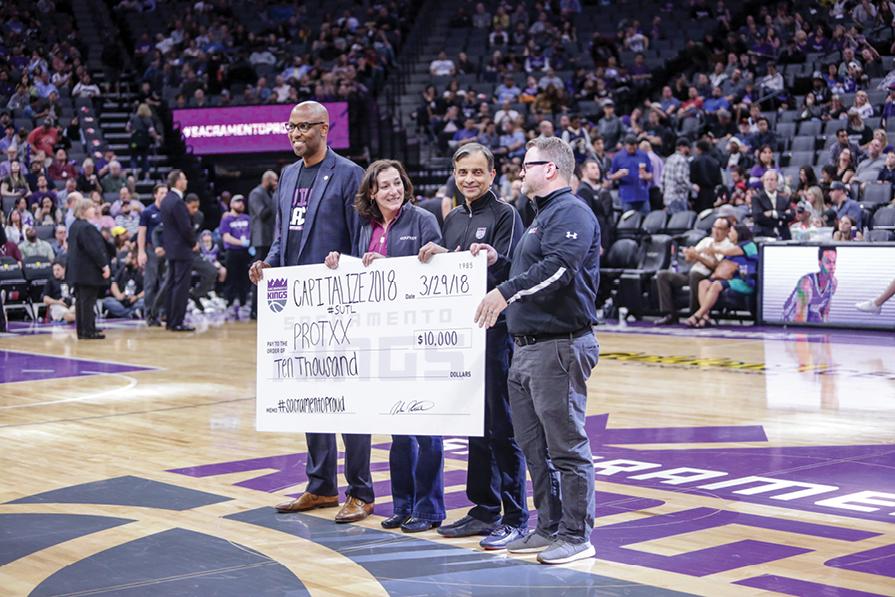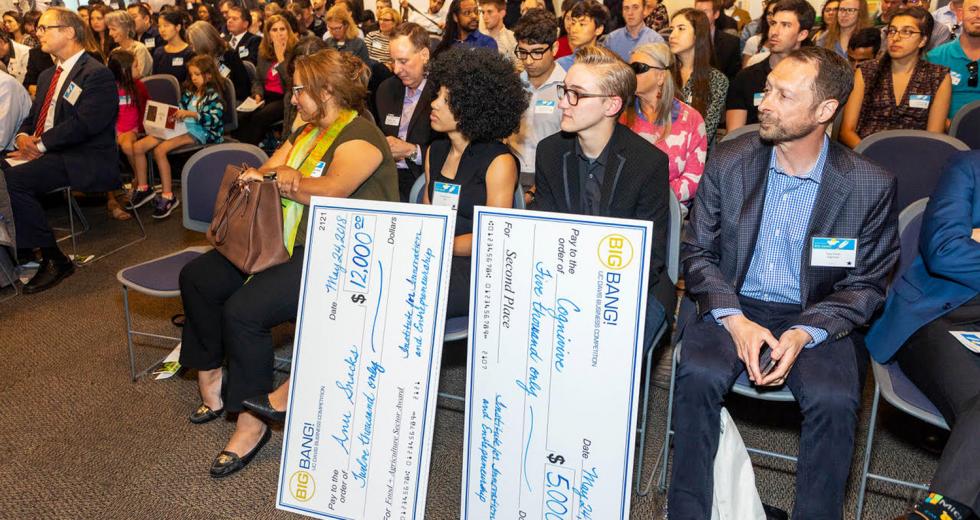It may seem like it snuck up on us, but the Capital Region has a healthy startup ecosystem that has been growing for over 25 years, starting with the establishment of the Intel and Hewlett-Packard campuses in the early 1980s. There have been many milestones along the way and we expect many more to come. We are definitely on the map as a city where you can build a startup.
But we still have work to do. The key ingredient to a healthy startup ecosystem isn’t just access to capital, although that is a very important piece. Culture — particularly one that encourages risk-taking, density and talent — also plays an important role. So, how do we stack up?
What We’re Doing Right
Over the past decade, the health of our region’s innovation ecosystem has made some major gains, specifically in terms of density and founder-education programs. Density (the opportunities for innovators to cross paths, exchange ideas and collaborate) has grown significantly, mainly due to the proliferation of coworking spaces. At these membership-based workspaces, entrepreneurs, freelancers and remote employees work together in a communal setting. We now have over 20.
We invite Sacramento’s high-wealth individuals to show their pride not only in our burgeoning arts and farm-to-fork food scenes or our professional sports teams, but also in our startup and innovation community.
Startup founders also have ample opportunity to meet and connect with each other, as well as with potential mentors, at startup events in our region. For example, Startup Grind and StartupSac Happy Hour provide a monthly opportunity to learn from a seasoned entrepreneur or investor. 1 Million Cups, a startup education program developed by the Kauffman Foundation, is a weekly gathering where early-stage startup founders get feedback on their business model. The local program was launched in 2016 by an all-volunteer team with the assistance of Impact Venture Capital, and over 200 startups have already presented.
Graham McBain and Kevin Weller first met as attendees at a 1 Million Cups event in Sacramento last year. A couple months later, they launched LayerOne, a geospatial blockchain technology company, and then presented this idea at 1 Million Cups earlier this year. In June, this very early-stage startup was acquired by XYO Network, a blockchain startup that has developed location-based technologies to connect the digital and physical worlds.
We’re also seeing serious commitments from Sacramento State’s Carlsen Center for Innovation and Entrepreneurship and UC Davis’ forthcoming Aggie Square to invest in local innovation.
Other programs that educate founders are also increasing. The Founder Institute, a global pre-seed startup accelerator, is actively recruiting its second Sacramento cohort, scheduled to begin in early 2019. We also have FourthWave, a catalyst program for women-led technology companies; and the newly launched California Capital AR/VR accelerator, which is attracting technology pioneers to the region. More of these kinds of programs are on the horizon.
Where We Need to Improve
Clearly, we have much progress to celebrate. But if we want to stay competitive with our peer mid-sized cities like Cincinnati, Columbus and Pittsburgh, we’ve got to focus on key areas of improvement. A recent report from the Brookings Institution underscored this, noting that the Sacramento region trails our peers on entrepreneurship rates and growth capital investments. Out of 16 select metropolitan areas with more than 1 million residents, our region ranked 13th for business dynamism — a measure that factors in startup growth and the density of high-growth startup companies, among other factors.
As the Brookings report suggested, we need to help young firms start and scale here like they do in our peer cities. Supporting and connecting our region’s startups is at the heart of StartupSac’s mission — but we need the community’s help.
Protxx is awarded $10,000 as the grand prize winner of the
Sacramento Kings Capitalize startup competition in 2018. Protxx
created a wearable sensor to help athletes reduce the risk of
impact injuries. (courtesy: Sacramento Kings)

First, we need to do a better job connecting early-stage startups to mentors and experienced entrepreneurs. Second, our startup ecosystem needs to increase access to seed investment. Access to seed capital is a major challenge for most cities, but it’s even more difficult in Sacramento, where we lag behind other mid-size cities. Other communities have been able to activate their investor community by emphasizing philanthropy over investor ROI. For example, investor and entrepreneur Brad Feld estimates that in his hometown of Boulder, Col., there are close to 2,000 people who are writing $25,000 – $100,000 checks on a regular basis, creating a layer of capital accessible to early-stage startup founders.
According to Feld, educating and activating a community’s high-wealth individuals — those with an annual income of at least $200,000 or a net worth of at least $1 million — around for-profit philanthropy is the biggest 3-5 year enabler of seed capital in a community. By translating the wealth in our communities into seed capital through for-profit philanthropy, we will be investing in the economic engine and innovation of the community.
So, do you love Sacramento? Are you #SacramentoProud? Do you want to see Sacramento’s innovation community not only catch up with other innovative U.S. cities but rise to become a recognized innovation hub?
Related: Youth entrepreneurship programs expand in the Capital Region
Related: Which Path Forward?
We invite Sacramento’s high-wealth individuals to show their pride not only in our burgeoning arts and farm-to-fork food scenes or our professional sports teams, but also in our startup and innovation community. By investing in local entrepreneurs, you’re helping sustain the long-term economic growth of our local economy. By increasing the number of successful innovative technology companies in our region, we’ll provide higher-income jobs and better employment opportunities for our university graduates. Ultimately, this will contribute to making our region a more desirable place to live.
How can you contribute? Learn about investing in startups. Build strong angel networks to enable the funding of early-stage startups. We invite existing investors to help educate potential new investors to strengthen the local angel investor network. Imagine the impact we can have if we plug in the capital and knowledge of thousands of successful people in our region to invest their time, expertise and capital in our innovation ecosystem. Then we will truly be a region on the rise.




Comments
Insightful article and spot-on highlights of areas for improvement. As a nonprofit startup helping those in the early stages of dementia maintain purposeful lives, it is a challenge to figure out who might know someone who might know someone who would be interested in supporting an organization like Caregiverpathways.org.